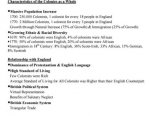- Joined
- Feb 19, 2012
- Messages
- 31,057
- Reaction score
- 3,969
- Location
- not here
- Gender
- Undisclosed
- Political Leaning
- Centrist
So, one thing that we hear as a battle cry by the NRA and politically motivated gun enthusiasts, is that gun control is a slippery slope to the the government issuing confiscations etc, and that "Shall not Be Infringed" is a very hard core steel wall of the second amendment that is to be taken at full face value, no matter what any court or proposed legislation might suggest that does not necessarily agree with such an edict.
This sets up a very interesting question when we consider the motives and behavior of our early patriots:
Secret History of the American Revolution; 1941, Viking Press: New York; by Carl Van Doren PhD., Pulitzer prize winner
Chapter 1: Before Arnold: Shifting Loyalties
Page 12; 1st and 2nd paragraphs:
civil war
[…of] June 1775
So, what we learn is that confiscation was a tool of the founding bodies that created the second amendment in order to control their communities and the people who lived within and without them. These people were young, angry "revolutionaries" who used violence and disarmament to force their proscribed views onto otherwise peaceful society.
Thoughts?
This sets up a very interesting question when we consider the motives and behavior of our early patriots:
Secret History of the American Revolution; 1941, Viking Press: New York; by Carl Van Doren PhD., Pulitzer prize winner
Chapter 1: Before Arnold: Shifting Loyalties
Page 12; 1st and 2nd paragraphs:
civil war
[…of] June 1775
No loyalist, any more than any British commander or his agent, saw anything wrong in trying to win the deserters back. They could not, strictly speaking, be traitors of a state which had no constitutional right to exist, and which therefore did not exist. To coax or urge or bribe them to come over was only an effort to restore them to lawful duty.
The patriots had another point of view. They believed that they has set up a legitimate government founded on natural human rights. Before July 1776 revolutionary committees had nagged and bullied Tories, and wherever possible disarmed them. Mobs had grossly abused and humiliated them. After the Declaration the new states passed laws against the loyalists and traitors.
So, what we learn is that confiscation was a tool of the founding bodies that created the second amendment in order to control their communities and the people who lived within and without them. These people were young, angry "revolutionaries" who used violence and disarmament to force their proscribed views onto otherwise peaceful society.
Thoughts?
Last edited:

